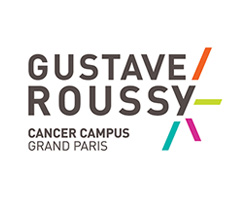AMPK activation induces immunogenic cell death in AML
Résumé
Survival of patients with acute myeloid leukemia (AML) can be improved by allogenic hematopoietic stem cell transplantation (alloHSCT) due to the anti-leukemic activity of T- and NK-cells from the donor. However, the use of alloHSCT is limited by donor availability, recipient age, and potential severe side effects. Similarly, the efficacy of immunotherapies directing autologous T-cells against tumor cells, including T-cell recruiting antibodies, chimeric antigen receptor T-cell therapy, and immune checkpoint inhibitors is limited in AML due to multiple mechanisms of leukemia immune escape. This has prompted a search for novel immunostimulatory approaches. Here, we show that activation of AMP-activated protein kinase (AMPK), a master regulator of cellular energy balance, by the small molecule GSK621 induces calreticulin (CALR) membrane exposure in murine and human AML cells. When CALR is exposed on the cell surface, it serves as a damage-associated molecular pattern (DAMP) that stimulates immune responses. We found that GSK621-treated murine leukemia cells promote the activation and maturation of bone marrow-derived dendritic cells. Moreover, vaccination with GSK621-treated leukemia cells had a protective effect in syngeneic immunocompetent recipients bearing transplanted AMLs. This effect was lost in recipients depleted of CD4/CD8 T cells. Together, these results demonstrate that AMPK activation by GSK621 elicits traits of immunogenic cell death and promotes a robust immune response against leukemia. Pharmacologic AMPK activation thus represents a new potential target for improving the activity of immunotherapy in AML.
| Origine | Fichiers éditeurs autorisés sur une archive ouverte |
|---|

